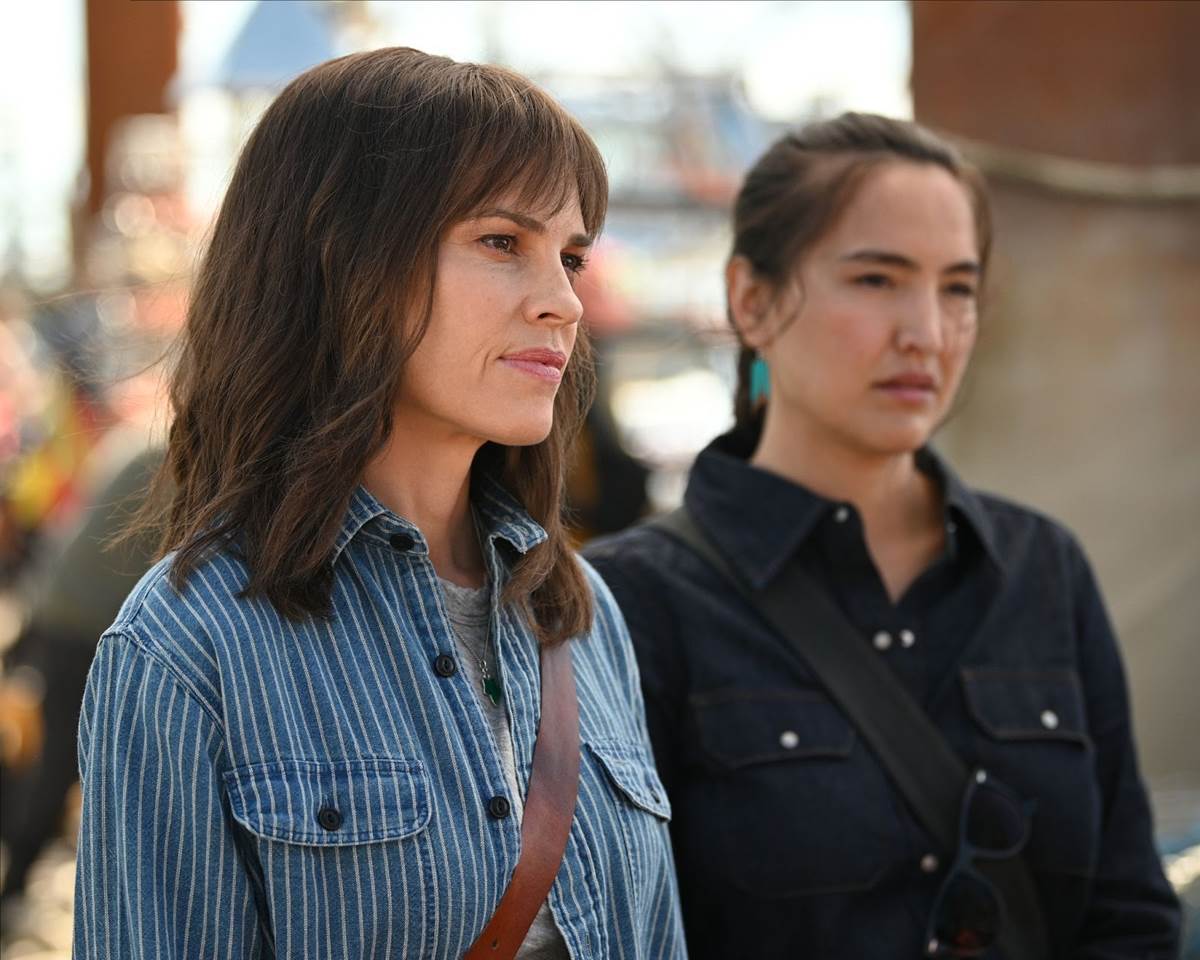“Lawless” – The Real Newspaper Article That Inspired ABC’s “Alaska Daily”
“The names Tom McCarthy and Hilary Swank immediately drew me to the series," actor Craig Frank said of the easy decision to join ABC’s new drama Alaska Daily. The series is the brainchild of the Oscar-winning screenwriter behind Spotlight and stars two-time Oscar-winning actress Hilary Swank in the lead role. But for Craig, story is the most impotant aspect of a project and he couldn’t stop thinking about this one. “There was something about the story that he was telling, and there was something about the history of what's happening, and it really drew me in."

(ABC/Sergei Bachlakov)
Like Spotlight, it was a real article that inspired this series about journalists. “Tom shared the article Lawless with me," Hilary Swank revealed at a TCA press conference about the Alaska Daily News story about sexual abuse towards Indigenous women, which inspired the case her character Eileen Fitzgerald is investigating. “At the heart of these stories, everyone wants to be seen, and everyone deserves justice. A lot of the roles that I choose have that theme in one way or another, and I feel like Eileen Fitzgerald is a truth seeker. She's an investigative truth seeker, and she wants to make sure that justice is done and that people see the truth in situations and people who are corrupt." Hilary Swank also shared a story about missing Indigenous women hitting close to home one day on set. “We had a day player last week who said, ‘My mom went missing.’ She was murdered and she went missing. And this is happening. It's not just something that we're telling."
An acronym you’ll hear a lot on the show is “MMIW," which stands for Missing and Murdered Indigenous Women. “We have been dealing with the MMIW and two-spirit-girls-and-boys situation for a long time," Grace Dove said, who plays Roz Friendly, who is paired with Eileen on the story. “As an Alaska native, we see a lot of people come in and maybe do it for the wrong reasons, bring up these stories for the attention, but not actually put in the work that it's going to take to support Indigenous peoples. And as a Shuswap person, we deal with this. I grew up along the Highway of Tears, Highway 16, in northern British Columbia, and this is universal across Indigenous peoples. We have been facing this for a very long time. And so to see this go on to network television, it's incredible, and I think that a lot of people are hopefully going to be curious and open and see it from a different lens."
“The significance of this show is local reporting," series creator and executive producer Tom McCarthy said of the show’s Alaska setting. “That's something I wanted to drill down on and why it's important, why it matters, why these sort of news deserts that are evolving across our country where there's no more local journalists or local papers are really detrimental and not just to a democracy and politics but just to the communities that they represent. That these small papers, in many ways, identify the personality of these communities and the identities of these communities. And I feel like that's really important, as we're losing that and people are getting funneled off into online sites and news sites. We're losing that. We're losing the ability to have these conversations locally… Local journalism is really, really struggling. The numbers of these papers have just not only dried up but disappeared over the last 10 years. It's staggering and terrifying. The real live newspaper, Anchorage Daily News, it's not a very good paper, but the work they're doing is tremendous. They're a tremendous group of editors and reporters, and they're covering, as Jeff [Perry] says in the show, a state 2.5 times the size of Texas. That's incredibly impressive. So I wanted the American people to understand that and why it's worth supporting journalists and the work they do."

(ABC/Darko Sikman)
“I gave myself a Tom McCarthy film festival in the beginning of preparation for the show," revealed Jeff Perry, who plays Stanley Kornik. “I was just reminded of the fundamental part of his gaze as an artist, as a storyteller that I love, which is trying to get it right and a really unadorned and unbiased and unshouting kind of truth. And when it's about journalism, in our environment, that has gone from news to opinion, news to views, and news to really divisive, I think on purpose, conflict-driven, social media, far right, far left, to me -- it's called journalism, but I was really yearning for, ‘Wait, could you talk to me quietly with facts and let me come to some feelings and some opinions about things?’ And I think that's fundamental to Tom's approach and Peter [Elkoff]'s approach and the show's approach and Hilary's art."
“We're trying to reach people who may or may not have lost their respect for journalists, and we're trying to help them regain that," showrunner and executive producer Peter Elkoff added. “As Hilary said, good journalists are truth seekers, and everybody should care about the truth." As for a long-term plan for the series, if successful, there are lots of stories to be told through Alaska Daily. “We're doing 13 episodes, the pilot plus 12, and we have certainly spent a great deal of time talking about how would we end the first season, how would we launch a second season; who would our bad guy be; who would our journalists be going up against; what stories would they be tackling. We have certainly done that."
Alaska Daily premieres tonight at 10/9c on ABC. Episodes will be available to stream the day after they air on Hulu.


